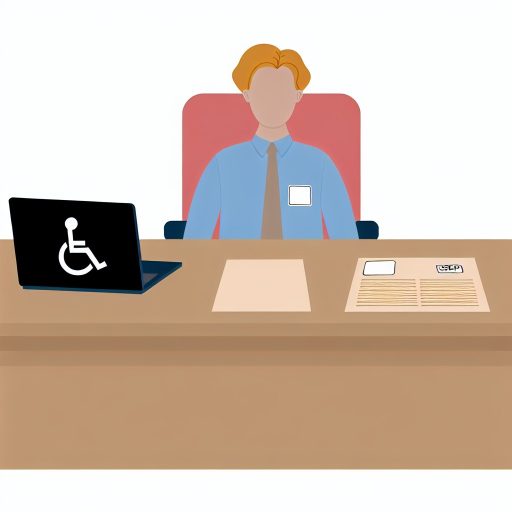Introduction
A housing coordinator plays a crucial role in ensuring efficient housing operations for residents.
It is essential for housing coordinators to have the necessary resources to fulfill their responsibilities effectively.
They must uphold the quality of life for the community they serve.
The Role of a Housing Coordinator
As a housing coordinator, one is responsible for overseeing housing programs.
They manage tenant relationships and coordinate maintenance requests.
Ensuring compliance with regulations helps provide a safe and comfortable living environment.
Importance of Essential Resources
Having essential resources equips housing coordinators with the tools needed to streamline processes.
They can address challenges promptly and promote resident satisfaction.
These resources are essential in optimizing operational efficiency and maintaining high standards.
Key Resources for Housing Coordinators
- Property Management Software helps manage resident information, track maintenance requests, and monitor lease agreements efficiently.
- Communication Tools facilitate effective communication with tenants, maintenance staff, and other stakeholders.
- Policy and Procedure Guides serve as a reference for handling various housing issues and ensuring compliance with regulations.
- Training and Development Programs enhance professional skills and knowledge to handle complex housing situations effectively.
- Financial Management Tools ensure accurate budgeting, financial reporting, and monitoring of expenses.
- Crisis Management Plans provide guidelines to address emergencies and unexpected situations promptly.
- Support Networks and Associations connect housing coordinators with peers for knowledge sharing and professional development opportunities.
- Performance Metrics and Evaluation Tools monitor key performance indicators to assess service quality and identify areas for improvement.
Benefits of Equipping Housing Coordinators with Essential Resources
Equipping housing coordinators with essential resources enables them to fulfill their roles effectively.
This approach enhances resident satisfaction and maintains high standards of housing services.
Providing access to these resources lets coordinators manage operations efficiently and address challenges proactively.
Ultimately, this creates a thriving community for residents.
Understanding Fair Housing Laws
- Provide an overview of fair housing laws and regulations:
- Discuss how housing coordinators can ensure compliance with these laws:
- Recommend resources for staying updated on fair housing laws:
Fair housing laws are federal laws that prohibit housing discrimination.
They protect against discrimination based on race, color, religion, sex, handicap, familial status, or national origin.
Housing coordinators can ensure compliance by providing fair housing training to staff.
They can implement non-discriminatory policies effectively.
Also, conducting regular audits helps maintain compliance.
Some resources for staying updated include HUD’s website.
Fair Housing Act guidelines provide detailed information.
Transform Your Career Today
Unlock a personalized career strategy that drives real results. Get tailored advice and a roadmap designed just for you.
Start NowAttending fair housing seminars also helps stay informed.
Database Management Tools
Database management is crucial for housing coordinators to efficiently organize data.
They must track information related to properties, tenants, maintenance requests, and more.
Having a system that streamlines processes improves the efficiency of housing coordinators.
Importance of Efficient Database Management for Housing Coordinators
- Housing coordinators deal with vast amounts of data that require regular updates.
- A well-managed database centralizes all relevant data for easy search and retrieval.
- Improved communication occurs as housing coordinators easily contact tenants, property owners, and staff.
- Seamless collaboration leads to faster response and resolution times.
- Efficient tools enable coordinators to analyze trends and monitor property performance.
- Data-driven decisions help optimize resources and track expenses.
- Coordinators ensure compliance by maintaining accurate documentation.
- A robust system tracks important documents, deadlines, and legal requirements.
Recommendations for Database Management Tools
Several database management tools can help housing coordinators streamline processes.
These options improve organization and overall efficiency.
- AppFolio Property Manager offers accounting, leasing, maintenance, and communication features.
- Yardi Voyager integrates lease management, financial reporting, and analytics tools.
- Buildium is user-friendly and tracks rent payments, maintenance requests, and inspections.
- Propertyware is cloud-based with features for accounting, maintenance, and tenant communication.
Effective Use of Database Management Tools
- Provide proper training to housing coordinators to maximize benefits and avoid errors.
- Customize tools to fit the specific needs of the housing coordinator’s role.
- Tailor fields, reports, and workflows to improve efficiency.
- Keep the software up to date for optimal performance and security.
- Implement regular database backups to prevent data loss.
- Store backups securely to ensure data integrity.
Explore Further: Interview Questions for Human Services Assistant Positions
Networking is essential for housing coordinators.
It allows them to connect with other professionals in the field.
They share best practices and stay updated on industry trends.
Benefits of Networking for Housing Coordinators
- Opportunity to exchange ideas and learn from others in the field.
- Potential for collaboration on projects or initiatives.
- Access to resources and information that can benefit their work.
- Possibility of finding mentors or advisors who can offer guidance.
Platforms and Events for Networking
- LinkedIn: A professional networking platform where housing coordinators can connect with peers and join industry-specific groups.
- Conferences and Workshops: Events dedicated to housing and affordable housing where professionals can network and learn from experts.
- Local Housing Coalitions: Groups that advocate for affordable housing, providing networking opportunities for professionals in the field.
- Online Forums: Platforms where housing coordinators can ask questions, share knowledge, and connect with others in similar roles.
Strategies for Building a Strong Professional Network
- Attend networking events regularly to meet new contacts and strengthen existing relationships.
- Follow up with connections after initial meetings to maintain communication and nurture the relationship.
- Offer help or support to others in the field, as networking is a two-way street.
- Be active on social media platforms, sharing insights and engaging with other professionals.
Discover More: Public Health Social Workers in Government Agencies
Budgeting and Financial Tools
As housing coordinators, having strong budgeting skills is essential.
These skills help you effectively manage resources.
Recommendations for Financial Tools and Software
- Consider using budgeting software such as Mint or YNAB to track expenses.
- Utilize spreadsheet programs like Excel or Google Sheets for creating detailed budgets.
- Explore apps like PocketGuard or GoodBudget for easy expense tracking on the go.
Tips for Creating and Maintaining a Budget for Housing Needs
- Start by listing all sources of income and fixed expenses such as rent, utilities, and insurance.
- Allocate a portion of your budget for savings and emergency funds to cover unexpected housing costs.
- Regularly review and adjust your budget to reflect any changes in income or expenses.
- Seek professional financial advice or attend budgeting workshops to improve your budgeting skills.
By utilizing these financial tools and following the tips provided, housing coordinators can manage their budgets effectively.
This approach ensures efficient allocation of resources toward meeting housing needs.
Discover More: Success Stories from Victim Advocates
Crisis Management Resources
Being prepared for housing crises is crucial for housing coordinators.
Effective handling of emergencies depends on this preparation.
Here are some essential resources and recommendations for developing crisis management plans.
Importance of Being Prepared
- Being proactive in creating a crisis management plan can help prevent chaos and confusion during emergencies.
- Having a well-thought-out strategy in place ensures swift and effective responses.
- Preparation helps minimize risks and protects residents and property.
Recommended Resources for Developing Crisis Management Plans
- Consult local emergency management officials to understand specific area risks.
- Use online resources like FEMA’s Ready.gov for templates and planning guides.
- Attend workshops and training sessions to learn best crisis management practices.
Guidance on Handling Emergencies Effectively
- Assign clear roles and responsibilities to staff during emergencies.
- Regularly review and update crisis plans to reflect changing conditions.
- Conduct drills and simulations to practice various crisis responses.
Prioritizing crisis management resources enhances emergency readiness.
Transform Your Career Today
Unlock a personalized career strategy that drives real results. Get tailored advice and a roadmap designed just for you.
Start NowHousing coordinators who prepare proactively keep residents safe and protected.
Effective crisis management maintains a secure and stable housing environment.
Find Out More: Legal Issues and Community Health Worker Practice

Training and Development Programs
In order to excel in their role, housing coordinators must prioritize continuous learning.
They should focus on professional development consistently.
Value of Continuous Learning
Continuous learning is essential for housing coordinators to stay abreast of industry trends.
It helps them keep up with best practices and regulations.
Learning continuously allows coordinators to adapt to changing circumstances.
This improves their effectiveness in serving residents.
Moreover, ongoing training enables housing coordinators to enhance their skills.
They can acquire new knowledge and expand their network as a result.
These benefits often lead to career advancement opportunities.
Ongoing learning also increases job satisfaction.
Recommendations for Training Programs
- HUD Certified Housing Counseling Program: This program equips coordinators with the necessary skills to provide comprehensive counseling services to residents.
- Resident Services Coordination Training: This workshop focuses on developing effective communication, problem-solving, and interpersonal skills for better resident engagement.
- Fair Housing Training: Understanding fair housing laws and regulations is crucial for housing coordinators to ensure equal access and treatment for all residents.
Tips for Incorporating Ongoing Training
- Allocate Time: Dedicate a specific amount of time each week or month for training and professional development activities.
- Set Goals: Identify areas for improvement and establish clear goals for what you want to achieve through training programs.
- Seek Feedback: Solicit feedback from peers, supervisors, and residents to assess the impact of your training efforts and make necessary adjustments.
By investing in training and development programs, housing coordinators can enhance their skills.
They improve their knowledge and overall effectiveness in meeting residents’ needs.
Housing coordinators also manage housing programs more efficiently as a result.
Legal Resources
- Address the legal challenges that housing coordinators may face.
- Recommend resources for seeking legal advice and support.
- Share best practices for working with legal professionals in the housing industry.
Legal matters are a crucial aspect of the housing industry.
Housing coordinators may encounter various legal challenges in their roles.
It is essential for housing coordinators to be well-informed about legal resources available to them.
They need these resources to navigate challenges effectively.
Transform Your Career Today
Unlock a personalized career strategy that drives real results. Get tailored advice and a roadmap designed just for you.
Start NowSeeking legal advice and support is vital for housing coordinators when dealing with complex issues.
To ensure they receive accurate and reliable information, coordinators should consider the following resources.
- Local Legal Aid Organizations: These provide free or low-cost legal assistance to individuals facing housing-related legal problems. Housing coordinators can contact them for guidance.
- Housing Law Attorneys: Consulting attorneys specializing in housing law helps coordinators understand rights and obligations. These professionals offer valuable insights and legal strategies.
- Government Agencies: Agencies like the Department of Housing and Urban Development (HUD) offer resources on fair housing laws and regulations. Coordinators can access valuable updates through these agencies.
Working with legal professionals in the housing industry requires collaboration and clear communication.
Housing coordinators can follow these best practices to collaborate effectively with legal experts.
- Establish clear communication channels: Ensure open lines of communication with legal professionals to discuss housing issues and legal strategies. Create an environment for sharing information and insights.
- Stay informed about legal updates: Keep up with changes in housing laws and regulations. This helps make informed decisions and anticipate challenges. Regularly consult legal resources and professionals.
- Document all communication: Keep detailed records of interactions with legal professionals, including emails, meetings, and calls. Documentation ensures accountability and clarity.
- Seek clarification when needed: Do not hesitate to ask questions or request explanations on complex issues. Clear communication is essential for successful collaboration.
- Adhere to ethical standards: Uphold ethics and legal guidelines during collaboration. Maintain confidentiality and respect legal boundaries to build trust.
By leveraging legal resources and adopting best practices with legal professionals, housing coordinators can navigate legal challenges effectively.
This approach helps uphold compliance in the housing industry.
Key Resources for Successful Housing Coordination
Housing coordinators must have essential resources to succeed in their roles.
Training materials provide foundational knowledge and skills.
Software tools improve efficiency and help manage workflows effectively.
Investing in professional development enhances expertise and industry awareness.
Seek updated resources to stay informed about trends and best practices.
Access to the right resources allows streamlined processes in daily work.
Better communication with stakeholders leads to improved service quality.
Providing excellent services positively impacts residents’ living experiences.
Prioritize equipping yourself with necessary tools and knowledge to excel.
Continuous learning and dedication set housing coordinators apart as successful.
Additional Resources
Social Determinants of Health and Older Adults | odphp.health.gov
Minnesota Department of Human Services / Minnesota Department …




